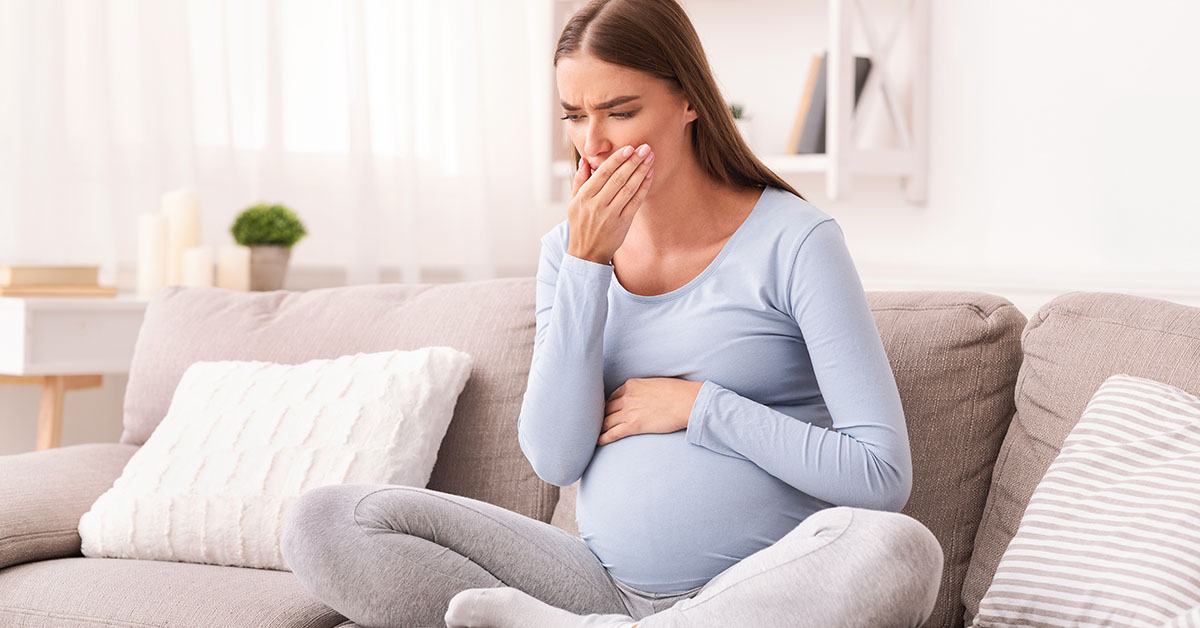 Kernodle Clinic - A DukeMedicine PRACTICE
Kernodle Clinic - A DukeMedicine PRACTICE
- Burlington 336-538-1234
- Mebane 919-563-2500
- Elon Family 336-538-2314
- Elon Pediatrics 336-538-2416
Regular Morning Sickness vs Hyperemesis Gravidarum

Many women experience nausea and vomiting during pregnancy. It is most common during the early weeks of pregnancy. Even though it doesn’t always happen in the morning, this is known as morning sickness. However, if you have severe nausea and vomiting during pregnancy you might have a condition called hyperemesis gravidarum. So, what is the difference between regular morning sickness and hyperemesis gravidarum?
About Morning Sickness
Any woman who has ever been pregnant and experienced morning sickness can tell you that the condition is poorly named. Nausea and vomiting associated with early pregnancy is not limited to the morning hours. That’s why many professionals don’t refer to it as morning sickness anymore. They call it “nausea and vomiting of pregnancy.” It can happen any time during the day and when it happens varies from woman to woman.
Some women will experience a short bout of nausea each day and vomit once or twice. Other women will experience multiple bouts of nausea that may be prolonged and vomit more frequently. Each pregnancy is different.
According to the American College of Obstetricians and Gynecologists (ACOG), nausea and vomiting of pregnancy usually start before 9 weeks of pregnancy. Most women experience relief from morning sickness after 14 weeks of pregnancy. However, it is possible for it to last several weeks or months beyond that. In rare cases, it can last throughout the pregnancy.
What is Hyperemesis Gravidarum?
Hyperemesis gravidarum is extreme nausea and vomiting during pregnancy. It is not as common as regular morning sickness. According to ACOG, hyperemesis gravidarum occurs in up to 3% of pregnancies. The cause of the condition is unknown.
Risk Factors
While hyperemesis gravidarum can happen in any pregnancy, there are some things that may increase your risk of developing the condition:
- Being pregnant with more than one fetus (multiple pregnancy)
- You had severe nausea and vomiting during a previous pregnancy
- You have a history of motion sickness
- Your mother or sister had severe nausea and vomiting of pregnancy
- Being pregnant with a female fetus
Complications
While hyperemesis gravidarum does not usually harm the mother or the fetus, there are potential complications associated with the condition. This includes:
- Weight loss: According to the National Institutes of Health (NIH), some women with the condition lose up to 5% of their weight if they are vomiting a lot and cannot eat. Weight loss may lead to problems with the liver and thyroid. It may also cause low birth weight in babies.
- Dehydration: If a woman has severe vomiting and is not able to keep food or liquid in her system, then she can become dehydrated. Call your OB/GYN if you develop the following symptoms of dehydration:
- You can’t keep liquids down
- Urine that is dark in color
- You only have a small amount of urine
- You are unable to urinate
- You feel dizzy or faint when you stand
- Your heart is racing or pounding
When to Seek Treatment
If you have morning sickness and your symptoms are interfering with your ability to perform everyday activities, you should consult your OB.GYN. Even if you don’t have hyperemesis gravidarum, they can help you manage your symptoms.
If you have the symptoms of hyperemesis you should see your OB/GYN right away to get the proper care to avoid dehydration and other complications.
Talk To An OB/GYN
If you are experiencing severe morning sickness, you should consult an OB/GYN. The physicians, nurses, and medical staff at Kernodle OB/GYN offer a comprehensive list of gynecological and obstetric services to the women in Burlington and Mebane, NC. If you have questions about nausea and vomiting during pregnancy, call us at (336) 538-2367 to make an appointment.
Click here to read the Duke Health COVID-19 update for information on the steps we’re taking to keep you safe.
